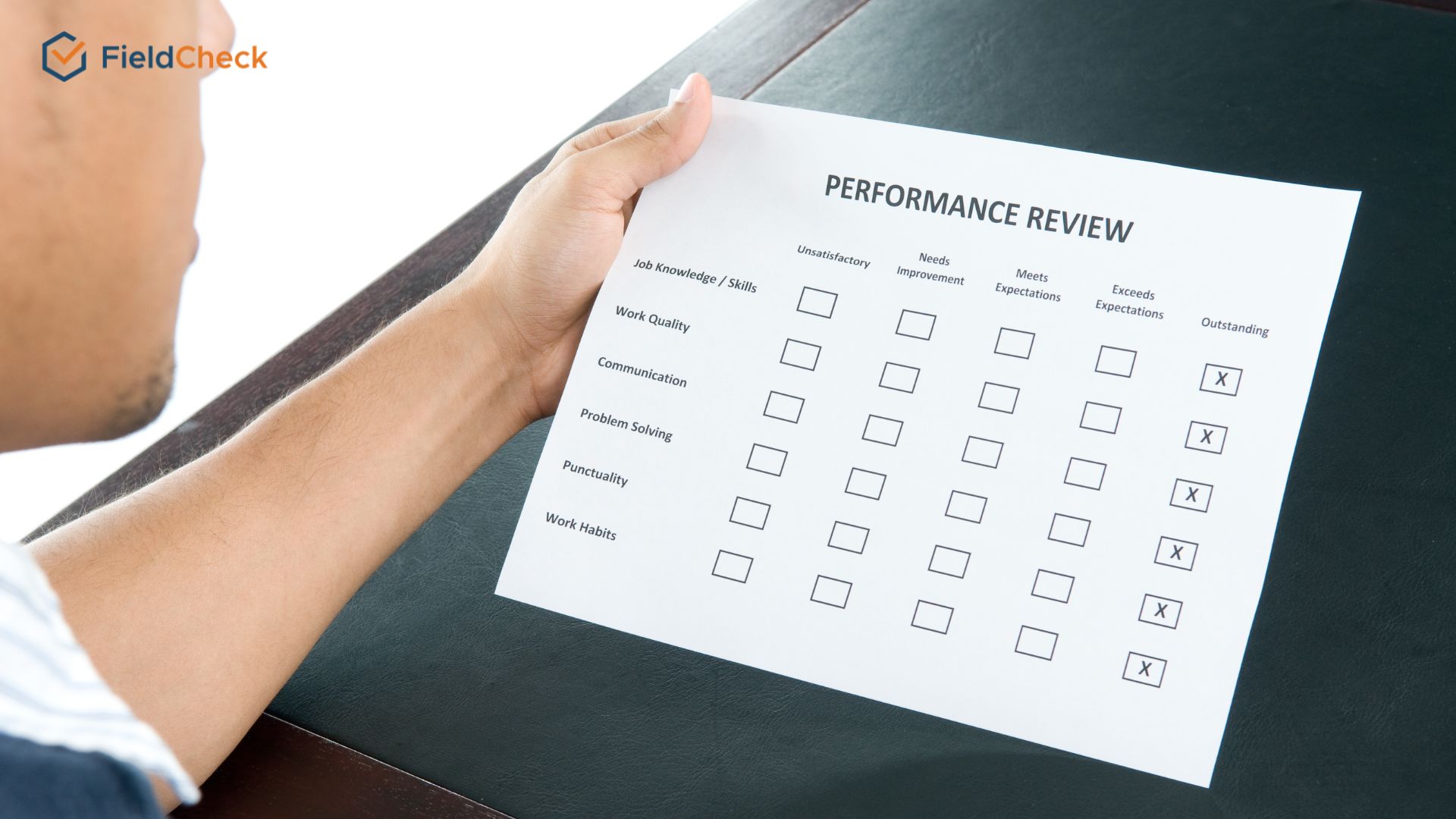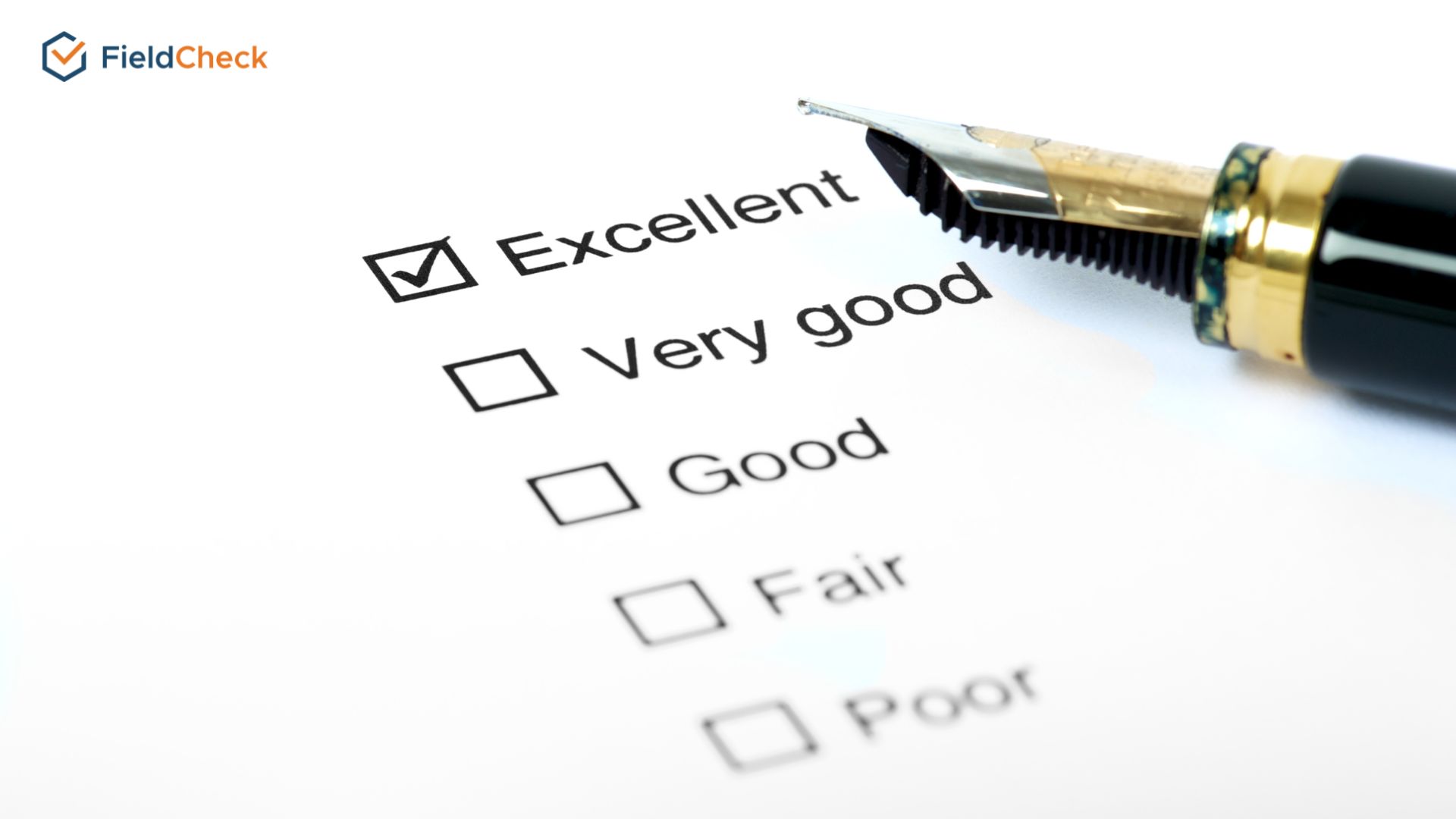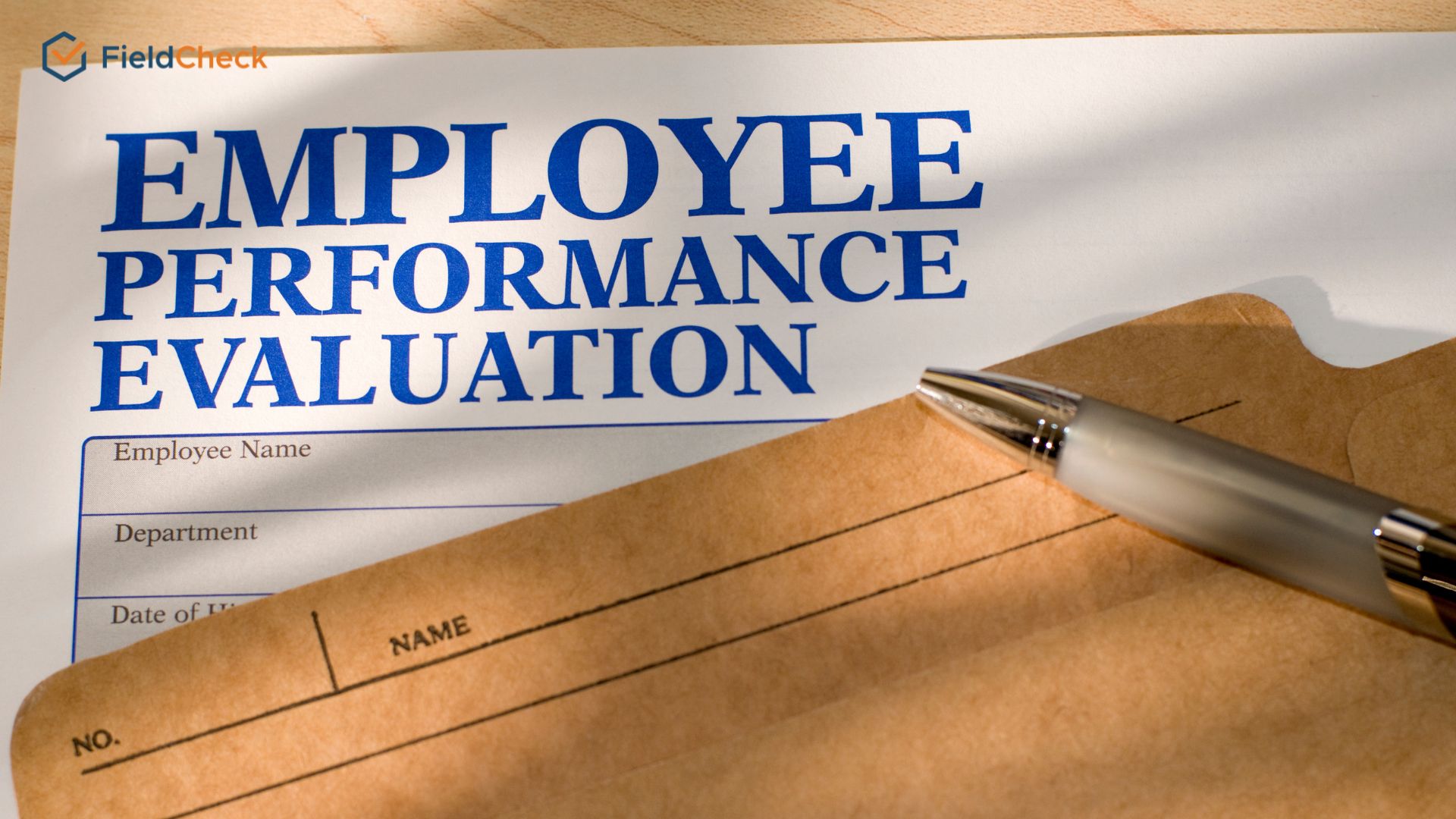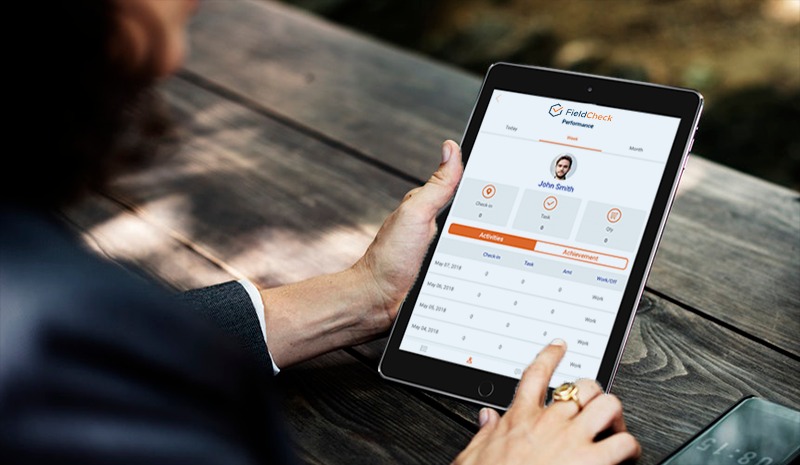Top Easy Ways to Evaluate Employee Performance
The performance management process is crucial in motivating your staff, enhancing work quality, and keeping them inspired daily. There is little doubt that evaluating employee performance is an important part of any organization's progress.
If you intend to introduce performance evaluations, want to revamp and update your company's approach, or need a reference guide, we get what you need in today's article. We will discuss about what is employee performance evaluation and how to evaluate employee performance. Check it out in the following parts.
What Is An Employee Performance Evaluation?
A formal and regular examination of an employee's work during a specific period is known as an employee performance evaluation, also known as a performance appraisal or performance review.
Managers assess and review an employee's overall performance in an evaluation. The goal is to identify their strengths and weaknesses, provide constructive feedback, and assist them in setting future development goals.

Performance review templates
Managers generally complete performance evaluations once a year, with routine checks all year. Employers can use performance evaluations to set clear goals and track an employee's accomplishments. The data acquired during an evaluation process can guide choices concerning salary hikes, promotions, and redundancies.
Performance reviews frequently involve the manager's judgment of the employee's performance and the employee's self-evaluation of their success. Performance reviews should be measured against particular purposes using metrics that are established.
Whatever technique you use or frequency you conduct performance reviews, a well-designed and accomplished meeting increases employee engagement and establishes a foundation for your organization to create a culture of ongoing feedback and improvement.
Why Are Performance Reviews Important?
Both employees and employers can benefit from employee performance reviews. Along with long-term upsides for businesses, professional employee evaluations also provide an extra kick for workers who desire an assessment of their strengths and weaknesses and to develop their careers.
Let's see what other benefits performance evaluations can bring you and your company.
For Employers
Employers who regularly monitor employee performance and frequent evaluations can benefit greatly. Through in-depth discussions and meetings, they will better understand the employee's attributes and motivations.
Leaders can convey requirements to their team, recognize their top performers, resolve complaints and conflicts as soon as possible, and boost motivation and engagement.
Moreover, annual reviews can provide important insight into past and existing recruitment processes to help the company improve future procedures.
Companies can acknowledge and reward competent staff, as well as detect and assist those that are struggling. The necessary interaction to make the evaluation process sufficient guarantees that you remain aware of your workforce's requirements and concerns.

A manager is discussing employee’s performance
Amid the fast pace of many firms, an annual performance review may be one of the rare occasions when employers provide planned good reinforcement and helpful feedback to their staff.
Such raises employee morale and company culture and contributes to developing a strong relationship between the company and the employee. Workers seeing how their labor is valued and important can help reduce employee turnover.
For Employees
In turn, workers can acquire a greater grasp of what they do well and where they can learn, and they have the chance to raise concerns or provide comments and suggestions to their supervisors. Also, they will know what the company expects of them.
Employees can hear advice, appreciation, and feedback for their efforts and be made aware of any deficiencies in their performance or behavior.
A job performance review is an ideal chance for employees to review their pay rates, career ambitions, and what they need to do to get there. It can also provide objective evaluations of individuals based on established criteria, which can be valuable for properly considering promotions, raises, and bonuses.

Performance evaluation is a good time for pay rises
Managers and employees can design a growth plan that improves the employee's skills while benefiting the organization by identifying points of strength and areas for improvements. It can pave the way for the employees' career development and long-term achievement and may unlock the door to future promotions.
The professional review provides a range of incentives other than compensation, including time off and bonuses, to express appreciation for those who have a good performance and exceed the company's expectations.
How To Evaluate Employee Performance
Here are some ways that can help you prepare well for an employee performance evaluation:
Establish A System Of Standards And Goals
Performance standards define what you want employees to do and how they should execute the task. These expectations apply to all employees who hold the same role. Regarding competency based performance appraisal examples, a salesperson's performance standard could be $10,000 in sales per month. Ensure your expectations are attainable and directly tied to the employee's performance.
Goals, unlike performance criteria, should be customized to each employee's strengths and shortcomings. A graphic designer should complete a course on a new software program to work more efficiently; an accountant should achieve an international certificate in public accounting, for instance.

Performance standards
Once you've determined the standards and goals for each department and employee, write them down and disseminate them to your staff. Thus, it will inform your employees of your expectations and what they must accomplish throughout the year to obtain a good professional review.
Keep Track Of Employee Performance
You can record and closely monitor your staff productivity during the entire year. It is also better to create a journal for each employee, whether on paper or electronically. You can note any special situations or good and bad initiatives made by the staff.
Meanwhile, you also can consider providing timely and immediate feedback when an individual completes an assignment with exceptional excellence or when they seriously mishandle something. It is best to inform the employee that you recognize and appreciate their extra effort, or if you are unhappy about their performance. In addition, it's a great idea to include a policy on employee discipline in your company's employee handbook.
Write Review And Hold Meeting

Written performance evaluation
Depending on each company policy, the performance review process can occur twice a year or every two years. However, it is better to formally evaluate an employee at least once a year by drafting a performance assessment and scheduling a meeting.
Peer Review
Many businesses have adopted peer review as a strategy to improve the traditional evaluation process. It is the process of receiving anonymous input about an employee from coworkers, teammates, and peers on certain elements of that employee's performance.
This technique gives a rare chance to investigate an employee's skills and capacities and aids in identifying an individual's networking, leadership, professional, and collaborative skills inside a business. Also, peer review helps to discover each employee's strengths and weaknesses and uses this important data to make decisions about succession planning, teamworking, and job placement.

Peer review
Self Evaluation
Self-evaluation is a critical action for improving the efficiency of your self appraisal process. This evaluation method allows employees to participate actively in their review period. Employees thus can raise their voices instead of simply being recipients of managerial feedback.
Self-evaluation establishes a clear relationship between their occupations and the evaluation process, fostering improved interaction between employees and management.
Employees who actively participate in the review process are more engaged with the overall process, giving supervisors a far greater grasp of the individual's performance and their impression of it.

Self-evaluation method
Employee Pulse Reviews
Employee pulse reviews might be a good match between regular reviews and a comprehensive once-a-year performance evaluation. It is a smaller-scale employee evaluation that is done more regularly, such as weekly or monthly.
Pulse feedback is more often linked with surveys about employee engagement. Still, it also works well for oppositely sharing input because it gives detailed indicators and is quick and simple to conduct.
How Can Performance Management Software Help You?
Consider incorporating performance management software into an annual appraisal process to decrease the cost pressure on small firms. Human resources (HR) tools from software providers like Leena AI, Odoo, SurveyLab, Officevibe, and others can assist small and medium-sized enterprises to give employees good and regular feedback.
A good performance management system provides real-time reports and improves communication among employees and managers. Plus, performance management software can present numerous and significant benefits, including:
- Provides more precise and impartial helpful employee feedback.
- Demonstrates clarity across employees and management levels.
- Reduces the pressure on the HR team and improves its efficiency.
- Ensures that staff receives more comprehensive and consistent real-time feedback.
- Examines individual performance data to identify areas where people shine and place them in roles.
- Compares employee goals established during review cycles to organizational values and objectives.
- Guides you through the procedure and saves results for future reference.
But even with the support from such software, knowing what to say and how to convey it is still important if you want your assessment process to increase employee retention and engagement.

Applying software helps ease burden of HR department
How To Implement Performance Management Software?
First, learn and master your words, style, and approach. Managers and HR personnel then have to spend time compiling and producing the material that serves as the foundation for each performance evaluation in your company. That is where performance management software can be of assistance.
Since performance management affects every person in the organization, each reform in this sector should be planned carefully and treated as a formal project with a dedicated project team.
In addition to HR, your project team should include some line managers and employees because they will make up the majority of system users, so getting their input is critical.
Make a business plan and assign dates and responsibilities to each item in the plan. Ensure the strategy covers the whole project life cycle, from planning and software selection to going public and ongoing success measurement.
Document your system requirements before you begin formally choosing your software. Again, it is preferable to do this alongside your management team so that you can capture the perspectives of many types of consumers. Divide your needs into desirables and essentials because no single system will suit all of your ideal needs.
If you choose a simple, intuitive tool, you will not have to train employees on how to use it. However, it would be best if you kept support arrangements in place to assist people who are not particularly computer literate or for users who do have specific questions or concerns about the software.




